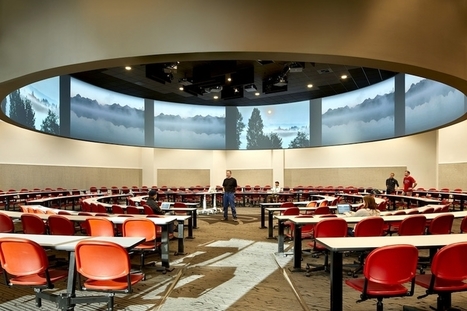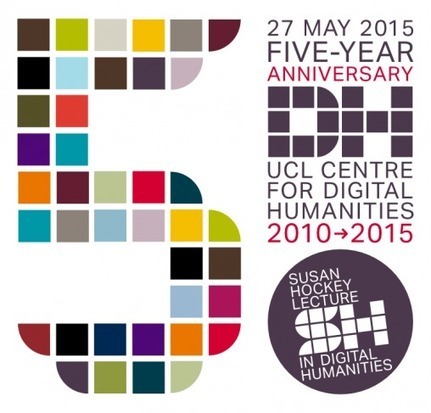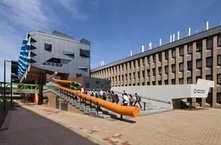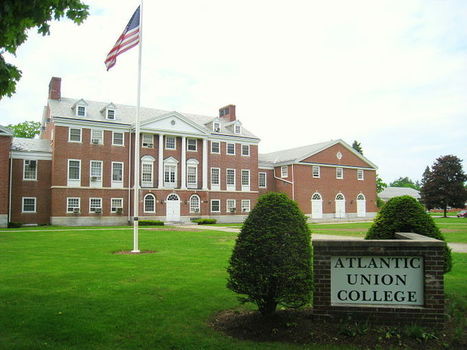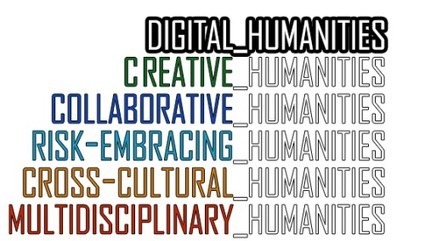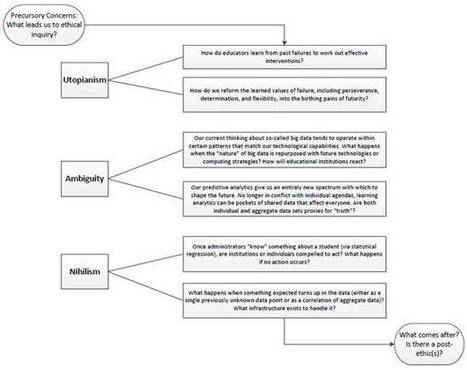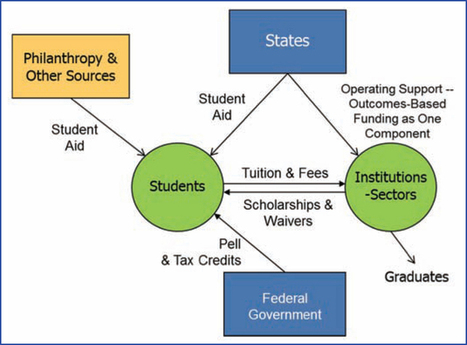Get Started for FREE
Sign up with Facebook Sign up with X
I don't have a Facebook or a X account

 Your new post is loading... Your new post is loading...
 Your new post is loading... Your new post is loading...

Carlos Fosca's curator insight,
February 21, 2018 8:09 AM
"The classroom spaces are flexible and allow for easy transition from a lecture format to group discussion. Students can reserve a variety of group study rooms by using iPads mounted outside of the rooms. “Learning lounges” are located on each level and provide space for meeting and help manage the large numbers of students congregating outside of classrooms before and after class. A naturally lit central stair links the interior spaces together and acts as a wayfinding tool." (Building Design+Construction, 2018).

Rosemary Tyrrell, Ed.D.'s curator insight,
January 26, 2016 3:25 PM
Some interesting findings here. Curation is a useful teaching tool. 
María Dolores Díaz Noguera's curator insight,
January 27, 2016 6:52 AM
University student engagement using digital curation and career goal setting | @scoopit via @NikPeachey http://sco.lt/...

Karianne Lessard's curator insight,
November 10, 2015 12:31 PM
Nous ne sommes pas les seuls en CMN2570, à l'Université d'Ottawa, à tenter d'innover dans notre manière d'enseigner! Étonnant de voir comment utiliser les techniques des digital humanities peut motiver les élèves à travailler plus fort sur des sujets qui peuvent parfois leur sembler dépassés comme c'est le cas des romans du 18ième siècle.
Jane Van de Ban's curator insight,
October 1, 2014 4:58 AM
Interesting article on which universites were searched for most. I'm afraid Birkbeck *wasn't* the top, but you will be surprised to see which university was.

Society for College and University Planning (SCUP)'s curator insight,
September 9, 2014 8:24 AM
A nice college of images and info from campus planning and design initiatives down under.

Society for College and University Planning (SCUP)'s curator insight,
September 2, 2014 9:38 AM
And Robert Zemsky says the faculty are sitting on the sideline: “We’re on the sideline. And that’s terrible that the faculty, writ large, are on the sideline.”

Society for College and University Planning (SCUP)'s curator insight,
August 13, 2014 8:50 AM
So, just how are we planning for higher education? What will "higher ed" look like when these kids turn 18 in, what, 2028?

Society for College and University Planning (SCUP)'s curator insight,
July 28, 2014 2:22 PM
A short, new, not-yet-published piece on sale in advance of publication—from our well-received #scup49 plenary speaker, Jeff Selingo. |

vgpascal's curator insight,
January 30, 2016 11:58 AM
On y parle de l'Innov@thon comme illustration de l'apprentissage événementiel ;-)

vgpascal's curator insight,
January 30, 2016 11:58 AM
On y parle de l'Innov@thon comme illustration de l'apprentissage événementiel ;-)

Alfredo Corell's curator insight,
November 22, 2014 11:00 AM
Poropat nos comenta dos estudios recientes que discuten cómo evalúan los alumnos su propio aprendizaje. Ambos llegan a la misma conclusión: Los estudiantes universitarios evalúan mejor a los profesores con los que aprenden menos; su aprendizaje se mide con su rendimiento posterior en exámenes de la materia es peor. Más aún, los estudiantes evalúan mejor a los profesores con los que obtienen mejores notas; en cierto sentido, estos profesores compran la opinión de sus estudiantes.

Society for College and University Planning (SCUP)'s curator insight,
September 9, 2014 8:57 AM
The author, James E. Willis, III is an educational assessment specialist at Purdue University.

Society for College and University Planning (SCUP)'s curator insight,
September 3, 2014 7:05 AM
A benefit of SCUP membership. Also available for others as an inexpensive download. Combine it with another SCUP book, A Practical Guide to Strategic Planning in Higher Education by Karen Hinton and you have a reference for your committees.

Society for College and University Planning (SCUP)'s curator insight,
August 18, 2014 10:15 AM
"Dennis Jones, [a frequent SCUP presenter,] is president of NCHEMS, a nonprofit research-and-development center founded to improve strategic decision making in institutions and agencies of higher education. Jones is widely recognized for his work in such areas as developing public agendas to guide higher-education policymaking; financing, budgeting, and resource allocation; linking higher education with states' workforce and economic-development needs; and developing information to inform policymaking.

Society for College and University Planning (SCUP)'s curator insight,
August 5, 2014 12:41 PM
Frequent SCUP speaker, Dennis P. Jones, is quoted as saying that “States are getting more sophisticated about what they’re doing and are crafting models that really reinforce institutional mission differentiation, rather than doing the same thing for everybody.” Jones is president of the National Center for Higher Education Management Systems, whose October 2013 report, “Outcomes-Based Funding: The Wave of Implementation,” examines such policies. “They’re also putting a bigger share of the allocation into outcomes-based funding.” This author concisely organizes this brief and informative resource, from AASCU's Public Policy magazine, under the primary heading of "A More Sophisticated Model," with these bullets.
|





